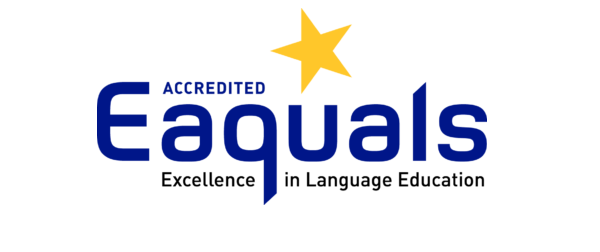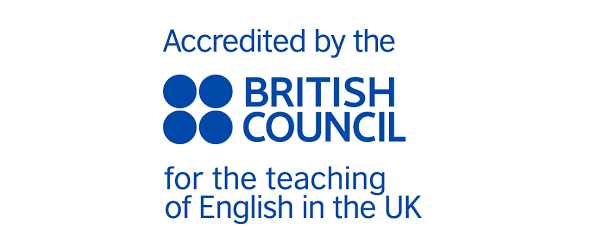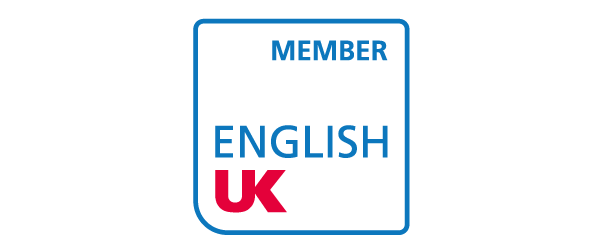Looking to give your teachers a CPD boost?
NILE is delighted to be able to offer organisations live online workshops run by experienced NILE Consultant Trainers who specialise in the topics below.
Workshops can last from 60 to 180 minutes and be scheduled at a time that suits your organisation. You can choose one workshop or we can help you put together a series of workshops to suit your group's needs.
Please contact the NILE Registrar (registrar@nile-elt.com) for more details.
Activities for pre-primary/ primary/secondary
Artificial Intelligence / Teaching with technology
Language for specific purposes (teachers of adults)
Activities for pre-primary/ primary/secondary
Artificial Intelligence / Teaching with technology
Language for specific purposes (teachers of adults)
Activities for pre-primary/ primary/secondary
Arts and crafts in pre-primary. Why and how? (pre-primary)
Fingerplays and Fingerplays and other little rhymes (pre-primary)
Fistful of fillers: low to no prep activities to get your classes going (primary, secondary, adults)
Incorporating phonics for pre- and early literacy skills development (pre-primary)
Meaningful art and crafts in English lessons (primary, secondary)
Origami in English lessons (primary, secondary)
Paper stories: storytelling using paper and folding (primary, secondary)
Springboard Stories in the Pre-primary Classroom (pre-primary))
Artificial Intelligence/Teaching with technology
AI fundamentals for teachers: Essential skills for today's classroom (primary, secondary, adults)
AI & I: A journey in teaching, teacher training and CPD (secondary, adults)
AI & Us – Can I..? Should I…? Ethical and responsible use in education (secondary, adults)
A few lessons in sustAInability: the environmental impact of AI and integrating responsible AI tools into ELT classrooms to promote sustainability and empower learners (secondary)
AI in my classroom – why not? Learning outcomes and lesson planning (primary, secondary, adults)
Helping learners to develop language skills with GenAI (secondary, adults)
Integrating AI in ELT: Designing and delivering AI-enhanced activities (primary, secondary, adults)
Teaching AI literacy: Guiding learners toward effective and responsible AI use (primary, secondary, adults)
Using GenAI for task-based learning and projects (secondary, adults)
Using GenAI to create teaching materials (secondary, adults)
Using GenAI to improve writing skills and provide targeted feedback (secondary, adults)
EU Digital Competences for Educators Framework: Area 1 Professional Engagement (secondary, adults)
EU Digital Competences for Educators Framework: Area 3 Teaching and Learning (secondary, adults
EU Digital Competences for Educators Framework: Area 5 Empowering Learners (secondary, adults)
EU Digital Competences for Educators Framework: Area 6 Facilitating Learning (secondary, adults
Classroom Management
Classroom Management: Sign here, please! Teens taking charge of classroom harmony (secondary)
Navigating the classroom: essential principles and practical tricks for effective classroom management (primary, secondary)
CLIL/EMI
Adapting materials to your CLIL lessons (primary)
CLIL: past, present and future (primary, secondary)
CLIL and competences. A happy marriage (primary, secondary, adults)
Developing speaking skills in CLIL (secondary, adults)
Picturebooks: storytelling & CLIL in English language primary classrooms (primary, pre-primary)
Rethinking multilingualism and the use of L1 in EMI (secondary and adult teachers working in CLIL and EMI contexts)
Step-by-Step Scaffolding for CLIL classes (secondary, adults)
Competencies
Learner competences: why you need to know about them (primary, secondary, adults)
Situational competences in language learning (upper primary, secondary, adults)
Social emotional competencies for the classroom (primary, secondary, adults, teachers)
Supporting and developing life competencies in the early years language classroom (pre-primary)
Drama
Drama for language teaching: bring stories to life (primary, secondary)
Drama for language teaching: bring pictures to life (primary, secondary)
Drama across the curriculum (primary, secondary)
Making the most of monologues: tell your own story (upper primary, secondary)
Transformation through improvisation: develop social skills and confidence while practising the language (upper primary, secondary)
Environmental sustainability
Building global citizens at middle school level: connecting SDGs with media literacy and local action to foster informed, reflective, and planet-conscious young teens (secondary)
Campaigning for change: turning climate concern into real-world activism through goal-setting, storytelling, and student-led campaigns (secondary)
Channelling climate emotions: turning eco-anxiety into positive classroom action by listening, nurturing, and amplifying student voices (secondary)
Cultivating changemakers: embedding purpose-driven, student-led projects into English lessons to build the changemakers of tomorrow (primary, secondary)
Empowering future changemakers: fusing SDGs, critical thinking, and creativity to help students find their voice and use it for environmental and social change (primary, secondary)
Let’s make every day environment day: projects and classroom hacks that help students turn awareness into daily, planet-positive habits (primary, secondary)
Planet-based classroom hacks: quick wins and low-prep ideas to embed sustainability into routines, displays, and the everyday rhythm of your classroom (primary, secondary, adults)
SDG: As easy as 1, 2, 3: integrating the United Nations Sustainable Development Goals (SDGs) into ELT classrooms (primary, secondary)
What makes a changemaker? Exploring the traits, types, and tools of changemakers and how students can join their ranks (primary, secondary)
Inclusion
A trauma-informed practice: advice on supporting students who have experienced trauma, considering how trauma can impact on the ability to learn (adults, secondary)
Accessibility in teaching and learning (primary, secondary, adults)
Adapting activities to suit different levels and needs (secondary, adults)
Adapting materials to needs (primary and secondary)
An overview of supporting learners with ADHD (primary, secondary, adults)
An overview of supporting learners with autism (primary, secondary, adults)
An overview of supporting learners with dyslexia (primary, secondary, adults)
Bridging the gap: practical ideas for differentiation in the classroom (primary, secondary)
Differentiating teaching and learning to help learners reach their potential (primary, secondary)
Differentiation, stretch and challenge in the English language classroom (adults, secondary)
Exploring the power of storytelling & creative reading to foster inclusive English language classrooms (primary, pre-primary)
Inclusion and diversity: spotting our biases and making sure we create inclusive materials (primary, secondary, adults)
Meeting diverse learner needs: effective task differentiation in the English language classroom (primary, secondary)
Mixed-ability classrooms (primary)
Stretching high-ability English language learners (primary, secondary)
The gift and challenge of including dyslexic students in your classroom (primary, secondary)
Unravelling storytelling & creative reading to foster inclusive English language classrooms (primary, pre-primary)
Using the flipped classroom approach to make your classroom more inclusive (primary, secondary)
Young Learners and multisensory learning: a holistic experience (primary, pre-primary)
Language for specific purposes (teachers of adults)
Building the foundations: the importance of needs analysis in professional English
Contextual learning: language as a communicative element in specific purpose English
Developing your own skills: understanding your learners’ technical language in ESP
Learner autonomy
Developing learner autonomy with your learners (primary, secondary, adults)
Developing reflective learners (secondary, adults)
Putting the learner in the driver’s seat: how to develop learner autonomy (primary)
Literature in the language classroom
An invitation to the wedding of ELT drama and literature: put them together and empower both teachers and students (upper primary, secondary)
Literature for inclusion: promoting learners anti-bias attitudes (primary, secondary)
Literature in action: promoting collaborative learning (primary, secondary)
Poetry in English: a creative writing experience for learners (primary, secondary)
Shakespeare: accessible and interactive drama techniques (primary, secondary)
Teaching literature: using poems in the language classroom (secondary, adults)
Teaching literature: using short stories in the language classroom (secondary, adults)
Materials design/evaluation
Developing your own curriculum (primary, secondary, adults)
Evaluating materials for your context (adults)
Using authentic materials to promote active learning (adults, secondary)
Using authentic materials in the ELT classroom (secondary, adults)
Peer observation and reflection
Developing teacher reflection in your classroom
Peer observation: learning from each other
Using the Peer Support Model for non-evaluative peer observations
Productive skills
Breaking the silence: 10 ways to empower students to express themselves (primary)
Confidence in speaking (secondary, adults)
Developing writing skills through creative writing activities (secondary, adults)
Discussion, debate, dialogue in the secondary ELT classroom (secondary)
From drills to skills: from memorisation to creative communication (secondary, adults)
Helping learners to achieve speaking success (secondary, adults)
My top 5 activities for developing speaking skills across levels (primary, secondary, adults)
Research-based approaches to teaching speaking (adults)
Research-based approaches to teaching writing (adults)
Using active methodologies to increase learners’ language production in primary English classrooms (primary)
Receptive skills
Listening skills: training not testing (secondary, adults)
Research-based approaches to teaching listening (adults)
Research-based approaches to teaching reading (adults)
Revisiting receptive skills (secondary, adults)
Teaching listening in the ELT classroom (secondary, adults)
The elephant in the room: developing learners’ listening skills (secondary, adults)
The Value of DARTs: how exactly Directed Activities Related to Texts help learners learn (primary, secondary, adults)
STEAM (Science, Technology, Engineering, the Arts and Maths) Education
Misconceptions about STEAM in language classrooms (pre-primary, primary)
STEAMing ahead in Project-Based Learning (pre-primary, primary)
Teacher development/Management
Cultivating a culture of care: exploring teacher well-being
Developing your teaching team with evidence-based observations (for teacher trainers of teachers of adults)
Finding yourself as a teacher: the key to successful teacher preparation (for trainers of PRESETT teachers)
Hands tied or hands-free? Using constraints creatively in teacher development
Language, power and education: critical pedagogy in teacher training
Learning from each other: ways to observe your peers and develop as a teacher
Managing an online teaching team: professional development, well-being and more
Managing institutional change
Organising your own conference
Practical steps toward teacher well-being through mindful management
Presentation skills for teachers and trainers: developing confidence to engage your audience
Setting up an effective performance management system: observations, appraisals and beyond
Teacher engagement in the language teaching organisation
Teacher-led teacher development programmes
The power of teachers’ stories: human libraries in training and development
Training outside the box – teacher-centred alternatives to the traditional INSETT
Using the Personal, Professional, Practical model to plan teacher development sessions
Well-being for English language teachers
Teacher questions
Effective questioning in the language classroom (secondary, adults)
If you ask me: the art and craft of asking effective questions (primary, secondary, adults)
Teaching approaches, SLA and (Action) research
Beyond the communicative approach (for teacher development)
Developing an action research approach to your teaching (primary, secondary, adults)
ELT methodologies: a practical overview of the research (primary, secondary, adults)
Project-based learning in pre-primary settings (pre-primary)
Second Language Acquisition: a bitesized overview of theories you can apply directly to your classroom (primary, secondary, adults)
Teaching language/Language awareness
Developing vocabulary through idiom and metaphor (secondary, adults)
Effective vocabulary teaching (secondary, adults)
Learning or acquiring vocabulary? A blended approach is the question (secondary, adults)
Teaching chunks and collocations (secondary, adults)
Discourse analysis activities for higher levels (secondary, adults)
Effective grammar teaching (secondary, adults)
Getting creative with grammar: Making grammar teaching enjoyable and memorable (late primary, secondary, adults)
An introduction to phonology for language teachers (primary, secondary or adults)
A practical approach to teaching segmental features of pronunciation (primary, secondary or adults)
A practical approach to teaching suprasegmental features of pronunciation (primary, secondary or adults)
Five practical ways to record pronunciation in class (secondary, adults)
Integrating pronunciation into lessons (primary, secondary, adults)
Integrating pronunciation into your teaching (primary, secondary, adults)
Pronunciation for listening (secondary, adults)
S.T.R.I.P: stress, tone, rhythm, intonation, phonemes. activities to show your students some of the finer nuances of pronunciation through games and other pron-based activities (primary, secondary, adults)
Tips and hints for more natural sounding pronunciation: a new take on teaching pronunciation (upper primary, secondary)
Keeping up with language change: contemporary English (secondary, adults)
Testing and assessment; Feedback
Assessment for learning in the primary classroom
Assessment literacy 2.0: time to update the future now (secondary, adults)
(Digital) formative assessment for all (secondary, adults)
Formative assessment principles and practice (primary, secondary, adults)
Giving effective feedback to learners (secondary, adult)
Integrating learning and assessment (primary, secondary, adults)
Land ahoy: feedback to move learning forward (secondary)
Learner-oriented assessment (primary, secondary, adults)
Managing exams and stress in the teenage classroom (secondary)
Sharing the construct: a model for learning and testing (secondary, adults)
Testing and assessment literacy: keeping it simple and relevant (secondary, adults)
The power of formative assessment (adults)
Well-being, SEL, engagement and motivation
Belonging and personalisation in the foreign language classroom (pre-primary and primary)
Classroom management through a needs lens: Building a supportive learning environment (primary)
Creating the conditions for learning: managing our emotional brain (primary, secondary, adults)
Engage me or enrage me! How have students’ expectations changed and what can we do about it? (primary, secondary)
Enhancing intrinsic motivation in learning (primary, secondary, adults)
Learning English with empathy: emotionally-safe English classrooms (pre-primary and primary)
Kickstart a positive school year with young learners! (pre-primary, primary)
Managing exams and stress in the teenage classroom (secondary)
Reawakening Humanism in the Age of AI Advancements in ELT (primary, secondary, adults)
Spice up your teaching: is fun enough to motivate your students? (primary)
21st century skills
Developing social skills through ELT: communication, creativity, cooperation, critical thinking (secondary and adult)
Critical literacy/pedadogy
Critical dialogue in the ELT classroom practice (secondary, adults)
Glass slippers or a glass ceiling? Critical literacy strategies in practice (secondary, adults)
Exploring controversial issues in the ELT classroom (secondary, adults)
Reading between and beyond the lines: critical literacy in the language classroom (secondary, adults)
Transformative teaching: seven principles for a critical language pedagogy (secondary, adults)
Critical thinking
Developing your learners’ thinking skills (secondary, adults)
Incorporating critical thinking and digital literacy into language lessons (secondary)
Making critical thinking happen (secondary)
More than meets the eye: thinking routines to go beyond See-Think-Wonder (primary, secondary, adults)
Thinking routines for young global citizens (primary)
Creativity
C for Creativity! A creative toolkit for English teaching (pre-primary, primary, secondary)
What if...? Imagination and creativity with young learners (pre-primary and primary)
Global Citizenship
Approaching global citizenship and social justice in the ESL classroom (secondary)
Global citizenship in language education (secondary, adults)
Intercultural awareness
Incorporating cultural awareness into language lessons (secondary)
Intercultural learning: an ‘add on,’ or an integral part of language learning? (secondary, adults)
Mirrors and windows: raising intercultural awareness in the young learner classroom (pre-primary, primary)
Mediation
Making Mediation Work: Practical Classroom Strategies for Secondary Learners
Other topics
Activating literacy skills for young learners (primary)
Approaches to teaching ESL learners in mainstream settings (primary, secondary)
Beyond pairwork and groupwork: deeper engagement through interactive workmodes (secondary and adult)
Hacking the power of mnemonics for the language classroom (primary, secondary, adults)
Learning Outcomes: the what, the why and the how (primary, secondary, adults)
Navigating the classroom: essential principles and practical tricks for effective classroom management (primary, secondary)
One bright idea for each step of your lesson (pre-primary)
Resourcing your difficult classrooms with imagination: tap into every learner’s real or imagined mind’s eye and find a wealth of resources for ELT (primary, secondary)
Using languages to learn, and learning to use languages (primary, secondary, adults)
Working with large classes (primary, secondary)
Would you like your students to learn language? Then stop teaching it (primary, secondary, adults)



